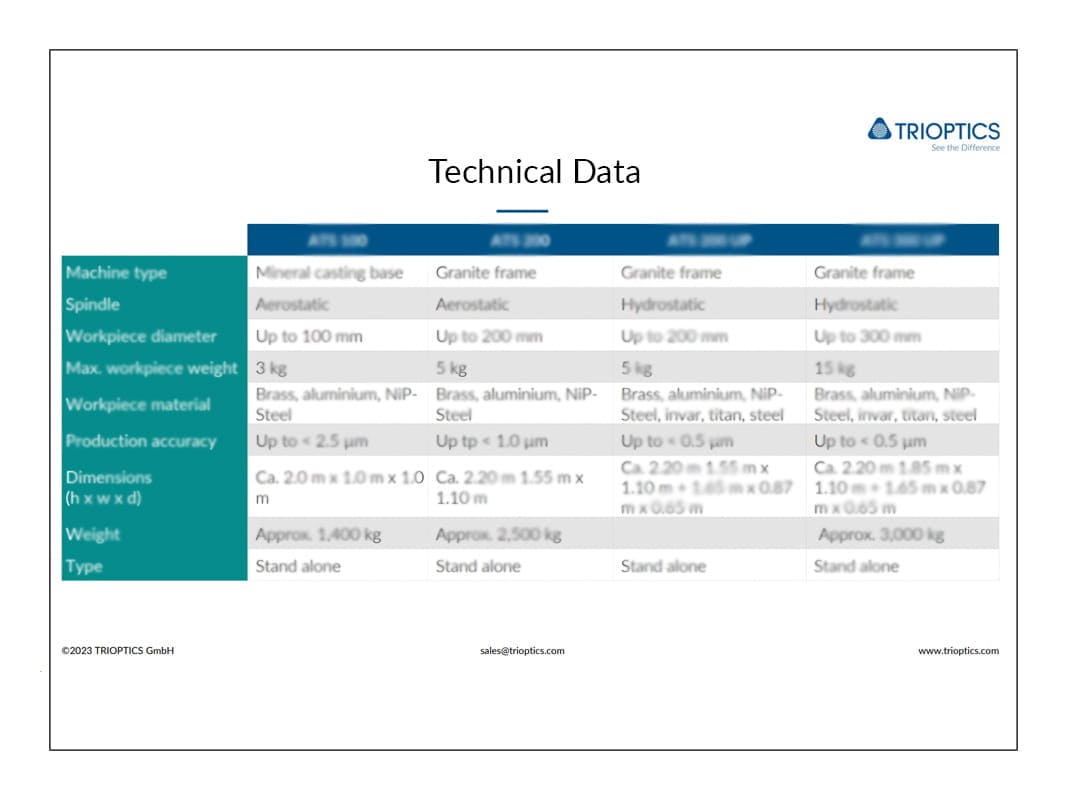OptiTest®
Visual optical measurement instruments
The large variety of the set-ups is, however, a combination of basic optical instruments known as collimator, industrial telescope, diopter telescope, dynameter, autocollimator as well as mechanical hardware for positioning of the basic optical instruments. Reticle and filter changers are optionally available.
To cover all conceivable testing set-ups required by fast changing applications, the components of OptiTest® line are designed as a modular system.
Cost effectivity
Flexibility
Diversity
Autocollimators
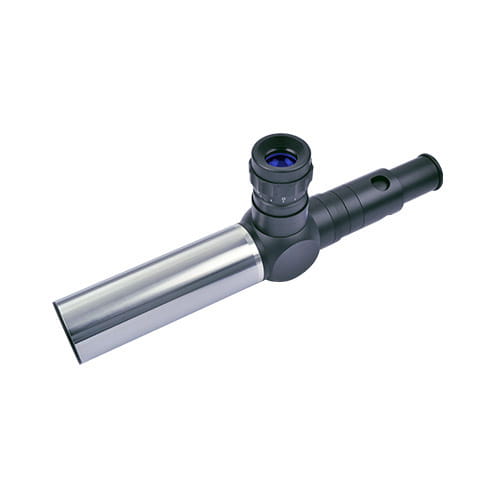
Autocollimators
Autocollimators with fixed focus setting
The two reticles of an autocollimator with fixed focus setting are positioned in the focal plane of the corrected objective lens, so that the emerging beam is parallel. This usual configuration is known as infinity setting, i.e the autocollimators are focused at infinity.
- Fixed focus setting with infinite setting
- Dual micrometer screw for shifting the reticle (optionally with digital display) available
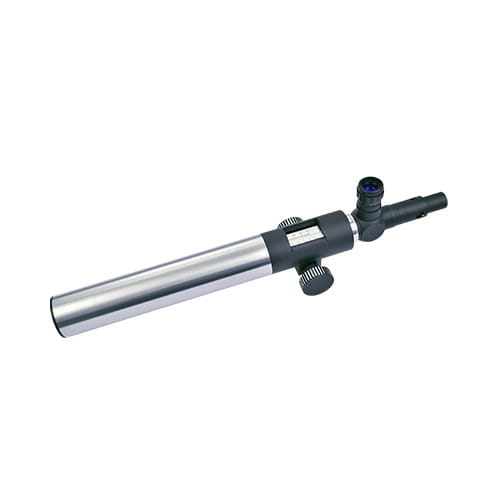
Focusable Autocollimator
Autocollimators with variable focus setting
The reticles of a focusable Autocollimator (focusable Autocollimation telescope) can be moved out of the focal plane of the objective lens so that the autocollimator can be focused at finite distances.
- Variable focus adjustment with finite distance setting
- Dual micrometer screw for shifting the reticle (optionally with digital display) available
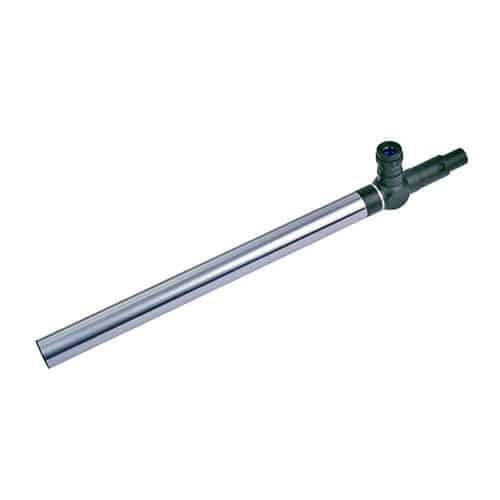
Large Field Autocollimator
Large Field Autocollimators with fixed focus setting
To meet customer requirements for testing optical instruments with large field of view, TRIOPTICS developed a unique line of autocollimators.
- 50 to 100% larger field of view in comparison to standard autocollimators
- Fixed focus setting with infinite setting
- Dual micrometer screw for shifting the reticle (optionally with digital display) available

Focusable Large Field Autocollimator
Large Field Autocollimators with variable focus setting
The reticles of a focusable autocollimator can be moved out of the focal plane of the objective lens so that the autocollimator can be focused at finite distances.
- 50 to 100% larger field of view in comparison to standard autocollimators
- Variable focus adjustment with finite distance setting
- Dual micrometer screw for shifting the reticle (optionally with digital display) available
Collimators
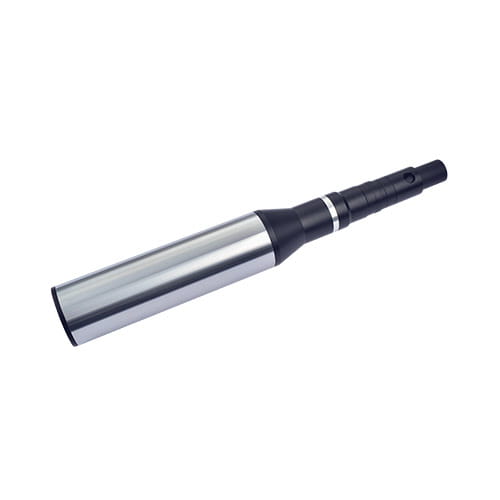
Collimators
Collimators with fixed focus setting
EThe Collimator is an optical instrument consisting of a well corrected objective lens with an illuminated reticle at its focal plane. The emerging beam is parallel (collimated beam), so that the image of the reticle is projected at infinity.
- The image of the reticle is projected into infinity at a wavelength of 546 nm (other wavelengths also available on request)
- The distance between reticle and objective lens is fixed
- Dual micrometer screw for shifting the reticle (optionally with digital display) available
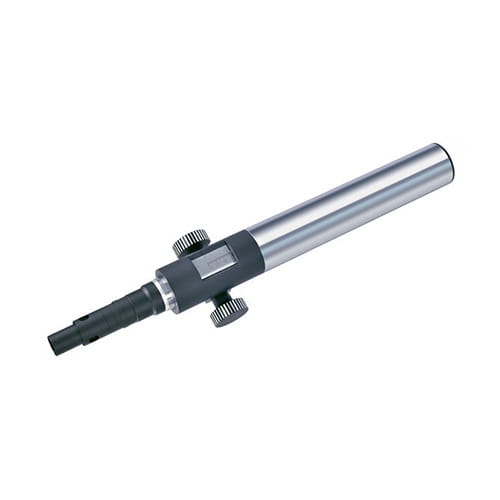
Focusable Collimator
Collimators with variable focus setting
The reticle nozzle of the focusable collimator (finite distance setting) is mounted on an extendable tube to allow the focal point to be adjusted. This makes it possible to achieve finite and infinite distance settings.
- The focal point setting is variable and both a finite and infinite distance setting are possible
- Dual micrometer screw for shifting the reticle (optionally with digital display) available

Large Field Collimator
Large field collimators with fixed focus setting
To meet customer requirements for testing optical instruments with large field of view, TRIOPTICS developed a unique line of collimators providing a significant increase of field of view.
- 50 to 100% larger field of view in comparison to standard collimators
- The image of the reticle is projected to infinity
- Dual micrometer screw for shifting the reticle (optionally with digital display) available

Focusable Large Field Collimator
Large field collimators with variable focus setting
The focal point setting is variable and both a finite and infinite distance setting is possible.
- 50 to 100% larger field of view in comparison to standard collimators
- Dual micrometer screw for shifting the reticle (optionally with digital display) available
Telescopes
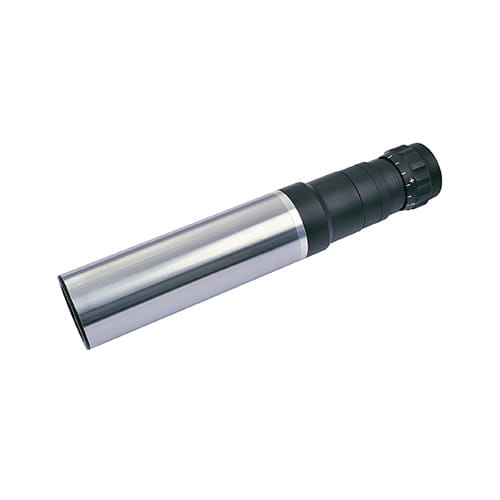
Telescope
Industrial Telescope with fixed focus setting
The Industrial Telescope is preset to infinity and images an object at a far distance into the image plane of the objective lens. The image is then magnified and visually inspected by an eyepiece. For measurement purposes usually a graduated reticle is located in the image plane. The magnification of the Industrial Telescope is given by the ratio of the objective focal length and the eyepiece focal length.
- The image is at an infinite or very large distance
- Optionally the industrial telescopes can be equipped with dual micrometers
- Optionally with reticle changer (RC)
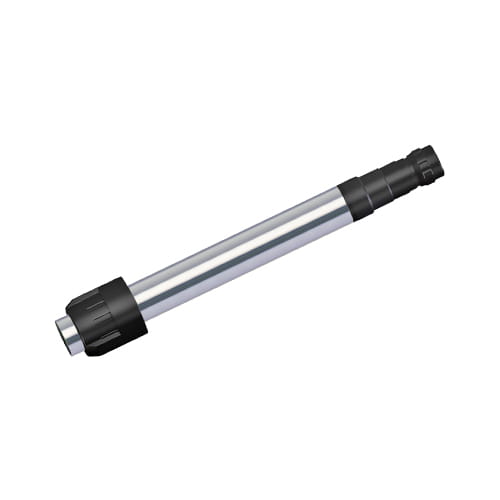
Focusable Telescope
Telescope with variable focus setting
Attaching a draw out tube to the reticle adapter to move the reticle out of the focal of the objective lens, the standard telescope becomes a focusable telescope. Depending on the location of the reticle relatively to the focal plane, it results a real or a virtual image at a finite distance.
- The focal point setting is variable and both a finite and infinite distance setting are possible
- Optionally the test telescopes can be equipped with dual micrometers for measuring image angles in two different directions.
- Optionally with reticle changer (RC)

Large Field Telescope
Large Field Telescope with fixed focus setting
To meet the demands that customers are placing on the testing of optical instruments with a large field of view, TRIOPTICS has developed a new and unique range of test telescopes that are characterized by a significantly larger field of view.
- 50 to 100% larger field of view in comparison to standard test telescopes
- Optionally the test telescopes can be equipped with dual micrometers
- Optionally with reticle changer (RC)
Dynameter
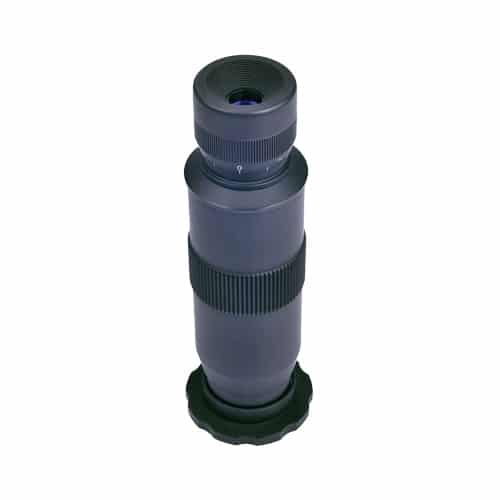
Measurement of magnification of telescopes
The Dynameter is used in optical testing for:
- Measuring of the diameter of exit pupil
- Checking the distance between eyepiece and exit pupil
- Measurement of magnification of telescopes
Diopter Telescopes
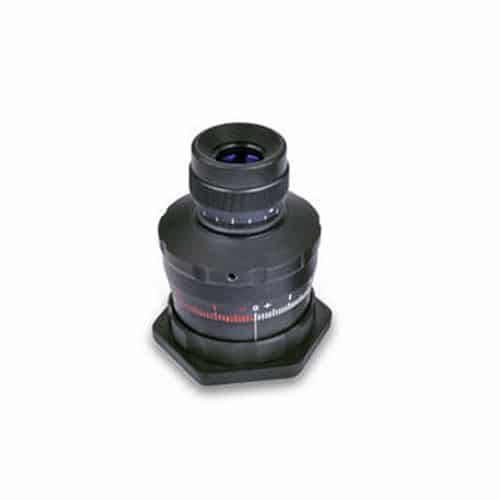
Focusable telescope
The Diopter telescope or dioptometer is a focusable telescope measuring the power of lenses in diopters. The results of the measurement can be read off on a graduated scale.
- Dioptometer can be attached to customer individual holders
- Nearly all TRIOPTICS Dioptometers have large graduations and permit easy reading
- Eyepieces are interchangeable and can be adapted to custom needs
Reticles
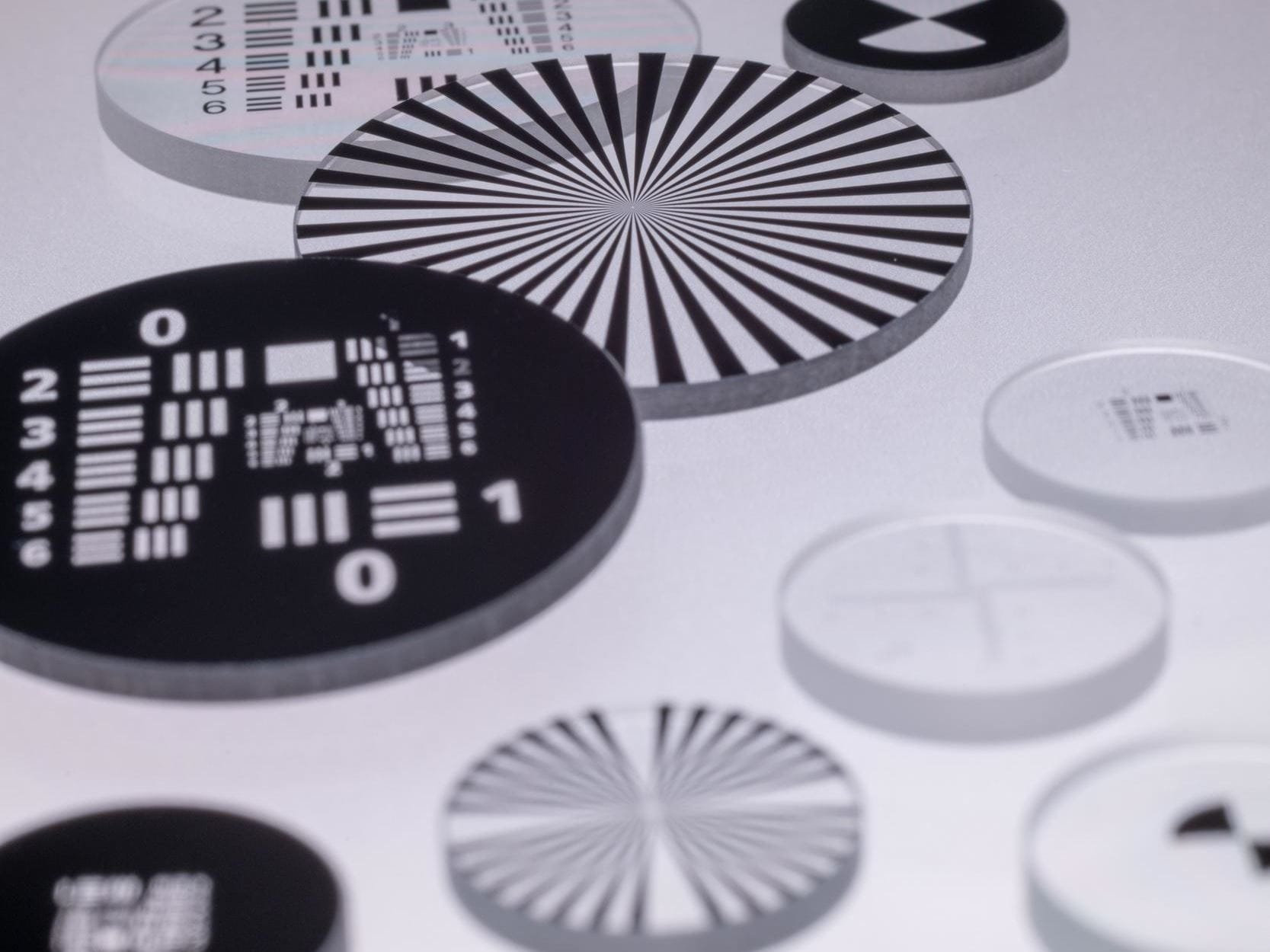
There are reticles for collimators and reticles for telescopes (Eyepiece-Reticle). For both types you have to distinguish between reticles for standard field of view and large field of view corresponding to the instrument you have chosen.
- For telescopes: Telescopes are used to observe objects that are imaged onto the eyepiece-reticle. For this reason it is recommended to use a positive eyepiece reticle.
- For collimators: Collimators image the structure imprinted on the reticle at some distance. Generally every reticle can be selected, but if fine structures are imaged it is recommended to use a negative reticle.
- For autocollimators: For autocollimators the right combination of reticles is important. RET-32 / RET-12 means RET-12 is the collimator-reticle and RET-32 is the eyepiece-reticle.
- Single cross, positive
- Single cross, negative
- Double cross, positive
- Siemens star
- Slanted edge, positve
- Slanted edge, negative
- USAF resolution test pattern, positive
- USAF resolution test pattern, negative
- Pinhole, negative
- H-Type, negative
- Single cross, positive
- Single cross, negative
- Single Slit, negative
- H-Type, negative
- Double cross, positive
- Siemens star
- USAF resolution test pattern, positive
- USAF resolution test pattern, negative
- Angle graduated scales, positive
- Angle graduated scales, negative
- Angle graduated scales, positive
- Distance graduated scales, negative
- Angle graduated scales, positive
- Angle graduated scales, negative
- Distance graduated scales, positive
- Distance graduated scales, negative
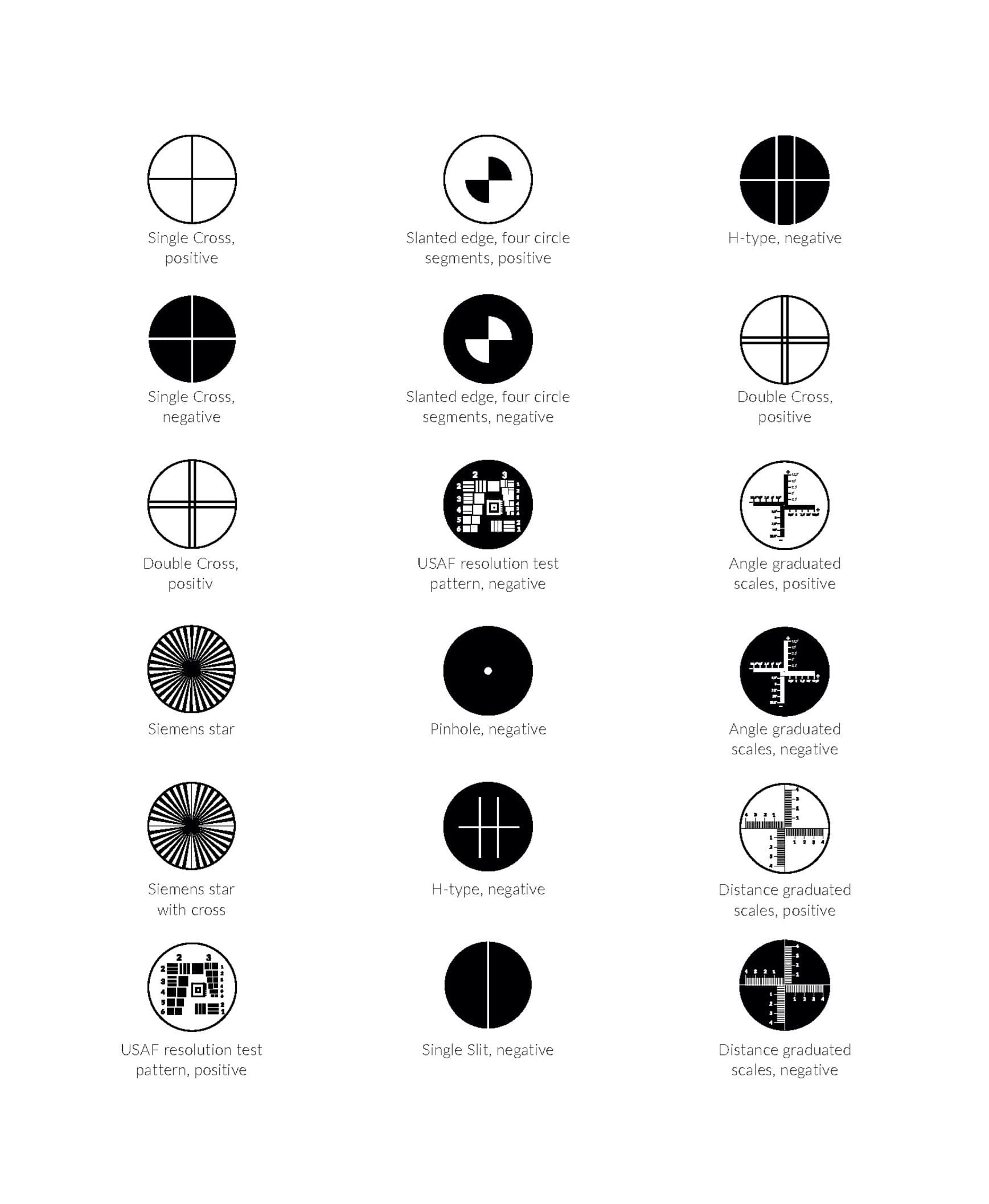
Upgrades
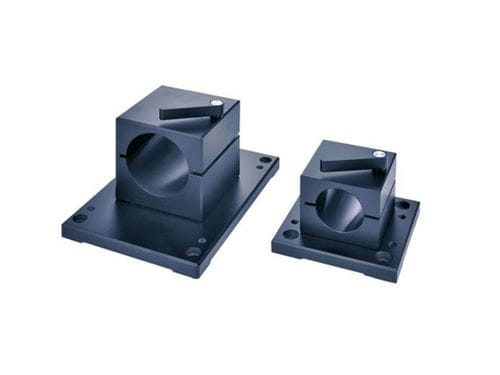
Clamp fixture:
- Clamp fixture D38
- Clamp fixture D57
- Clamp fixture D115

Adjustable holders:
- Adjustable holder D38
- Adjustable holder D57
- Adjustable holder D115
- Adjustable holder D140

Stativ:
- Stativ/Stand
Stands
- Manual Stand for D38
- Manual Stand for D57
- fixture for wedge measurement
- Stand
V-Prisma (Magnetprisma):
- V-Prisma for waves D20 to D50
- V-Prisma for waves D50 to D150

Mirrors and optical flats in mount:
- Mirrors in mount D38/D57
- Mirrors in mount D115/D140
- Optical flat in mount for D38/D57
- Optical flat in mount for D115/D140

Adjustable mirrors and optical flats in mount:
- Adjustable mirrors for D38/D57
- Adjustable mirrors for D115/D140
- Adjustable optical flat for D38/D57
- Ground plate
- Ground plate with stop bar

Deflecting mirror:
- 45° deflecting mirror for D38
- 45° deflecting mirror for D57
- 45° deflecting mirror for D115
- Penta Prism 50mm +/-1´ in holder
- Master Penta Prism in holder, Aperture 1 3/4 inch x 1 7/8 inch
- Master Penta Prism in holder, Aperture 1 3/4 inch x 1 7/8 inch
- 90 degree optical square with adjustable mount

Laser prealignment tool:
- Laser prealignment tool D57
- Laser prealignment tool D115/D140
Viewfinder prism
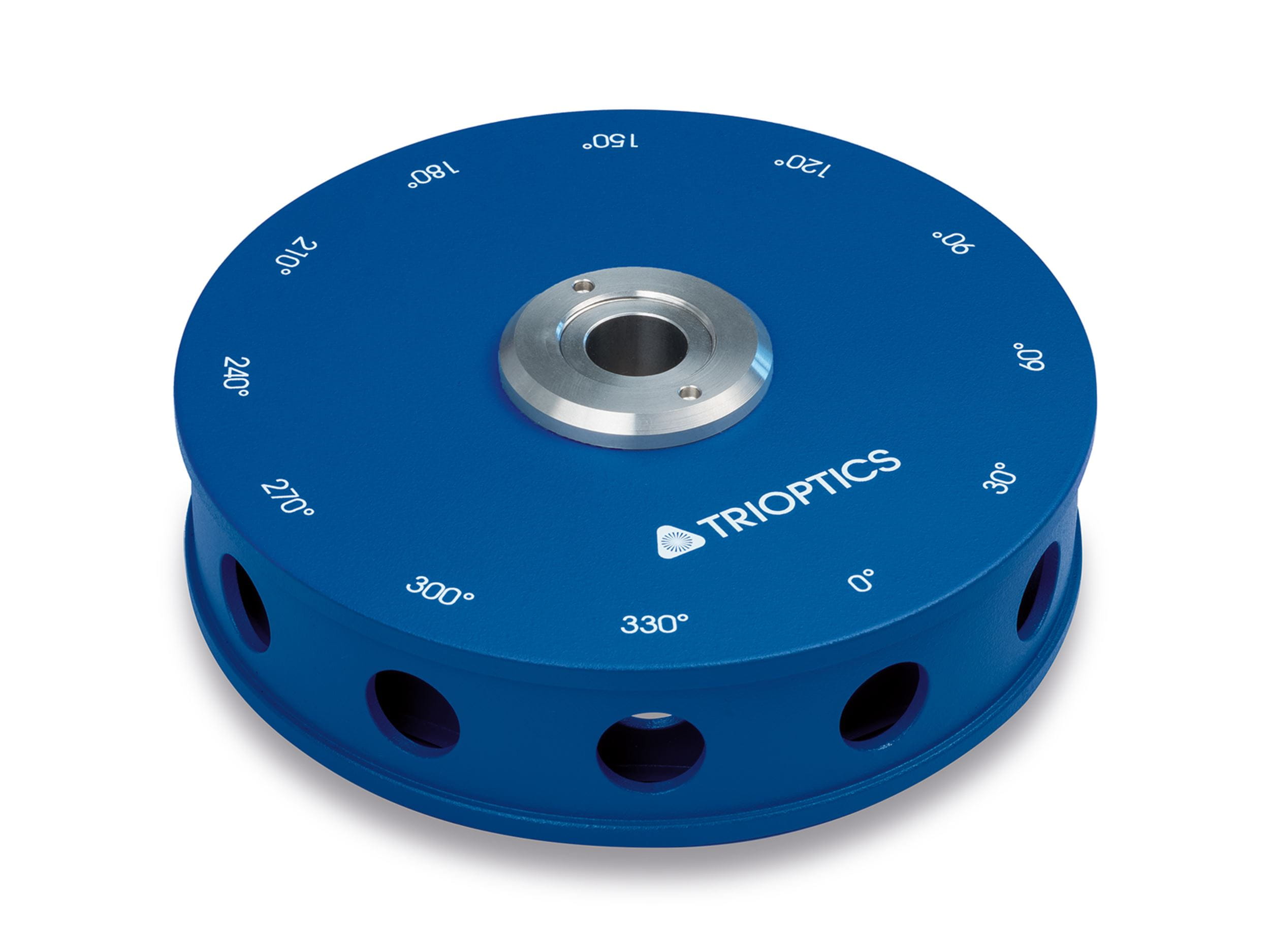
Polygons:
- Polygon 12 sides in holder, 5 second accuracy
Reference prism:
- 90° reference prism in mount
Calibration wedges:
- Calibration wedge 10 arcmin
- Calibration wedge for TriAngle UltraSpec 10 arcmin, with integrated band-pass filter

Other accessories
- Tool for rotary axis measurement
- precision level
- remote control for TA
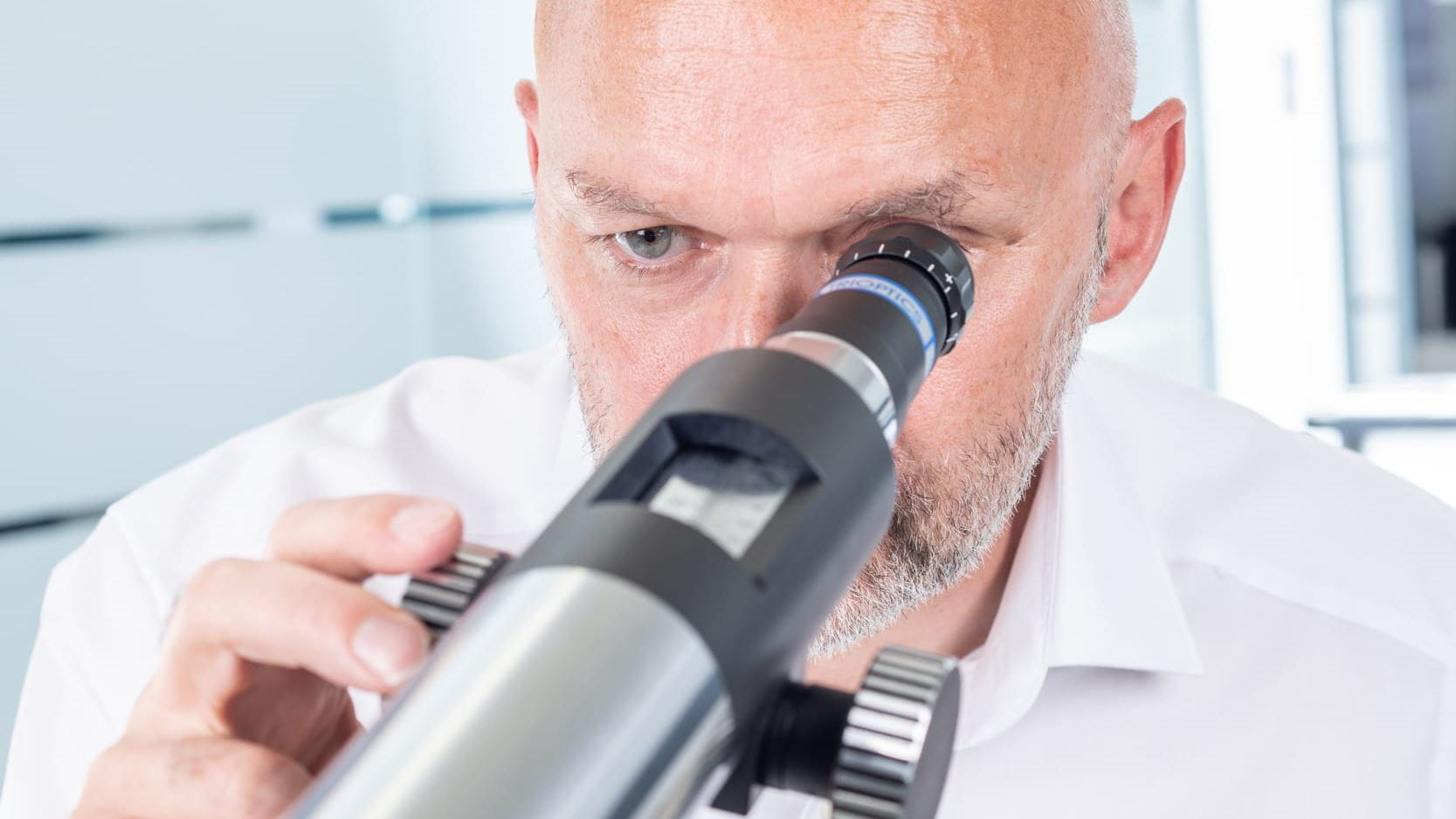
Are you interested in a product and would like to receive a quote?
Whether you need advice or already have specific requirements, we will be happy to help you!
Use our contact form and get quick feedback from our experts.Our Newsletter – Your advantage in knowledge
Be one of the first to experience our product novelties and innovative application possibilities.
